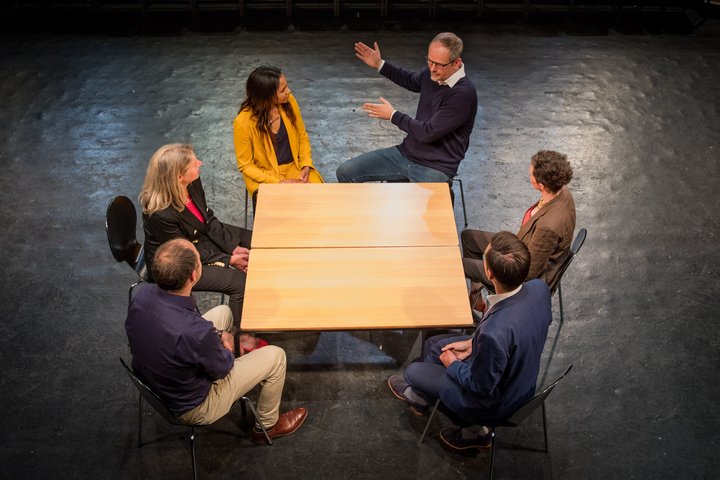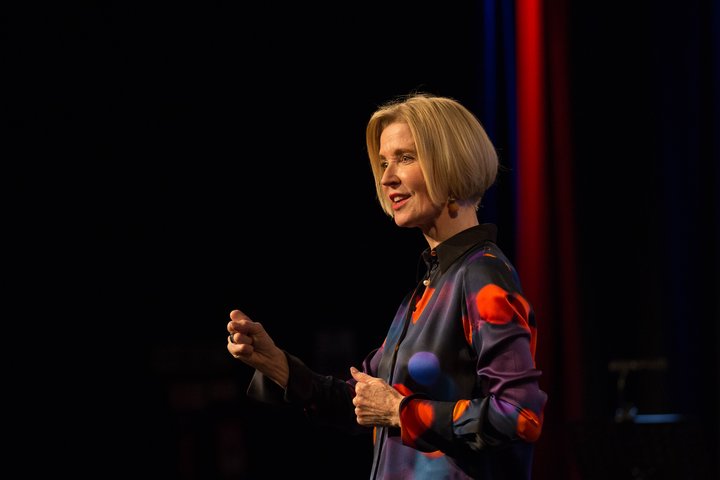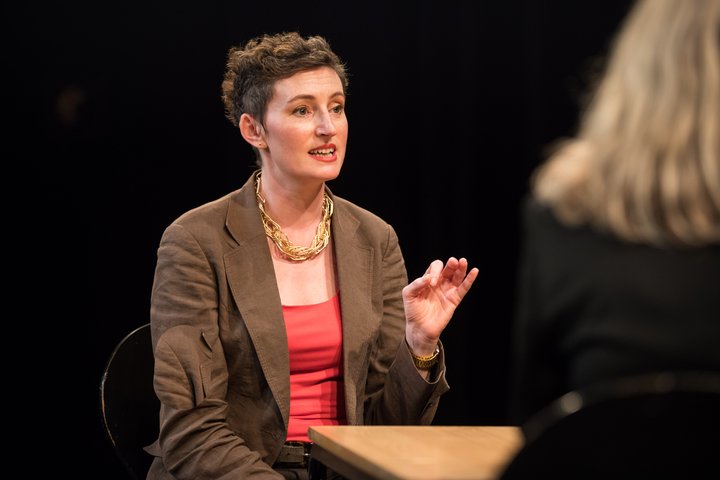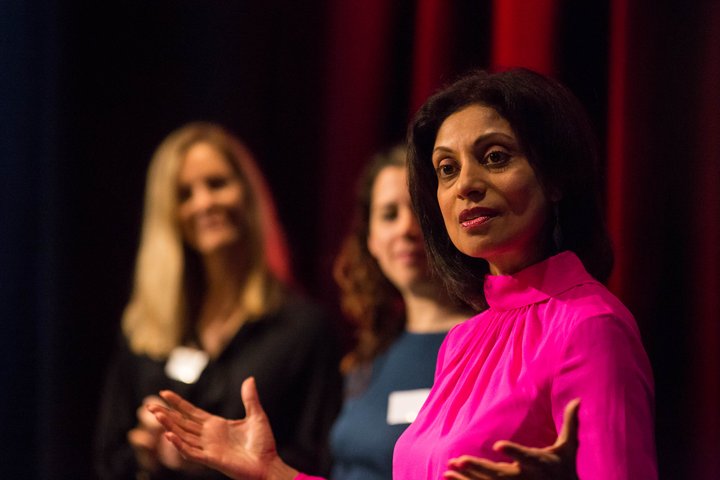The value of storytelling in business
When were you last moved by a story – a play, film, or book, perhaps, even an advert, or a conversation with a friend? Chances are, you can immediately remember several stories that resonated with you.
Storytelling is at the core of human interaction; it’s how we connect with people. “We are storytelling animals”, says playwright and RADA Business tutor Tariq Jordan. “Story structure mimics how we learn as human beings. A protagonist exists in the world and then they experience that world. And often through trials that they encounter, they change, and then the cycle continues. Existence, experience, change. That cycle happens constantly throughout our lives.”

The power of stories – and why we tell them
The storytelling cycle of existence, experience, learning, and change is universal because it is fundamentally how we learn as humans, and how we adapt and survive as a species. How can we bring the power of storytelling to our work lives and use this huge potential for connection to make our interactions more meaningful and effective?
“Relationships between people are very much like a transaction”, explains Tariq. “But we don't trade in money, we trade in stories.”
“Say I am facing a challenge and I tell this in the form of a story to a friend, my friend in return offers me something (a story, an experience, or an anecdote) of similar value. They won't give me something that's completely unrelated altogether. During this transaction, something happens…empathy is created.”

Why do we feel such a connection when people share their stories with us? Not only do stories help us to identify with the speaker, but they can also alter our chemistry, according to scientific research. Tariq says: “when we listen to a story that resonates with us, the brain produces the hormone oxytocin, which promotes the feelings of care, connection, and empathy. Powerful stories change the brain chemistry of the listener, which in turn, changes human behaviour.”
Storytelling as a form of currency in business
Stories are also powerful tools for business. They can help us to effectively engage our audience when giving presentations or explaining a complicated concept to a colleague. Think of a company website – it works well when telling a good story, whether through words, colours or images.
Tariq says: “The ‘About’ page of a company’s website draws a lot of traffic. An audience wants to know: what is the story behind this company or this person? What is their origin story? We all have our own origin story, but we tend to underestimate its value in building connections. When people ask, ‘what do you do’; they're not really asking, ‘what do you do’, they're asking ‘what value do you bring’.”

Don't sell yourself short
The same goes for job hunting. How we present ourselves in interviews is a form of storytelling too. We need to make sure we tell a good story about our experience and hard work to stand out from the crowd.
“Often we see CVs full of adjectives. Buzzwords such as ‘great collaborator', ‘embracer of diversity', ‘extremely adaptable’..." says Tariq. “But they are simply words, and only through a story do they come alive.”
It can be tempting to associate professional communication with sharing facts about yourself and making sure that you hit the key points in a job description, but don’t underestimate the power of storytelling.
“Find your value story! Illuminate us with that specific moment you collaborated with a team to achieve lasting results. Intrigue us with the time you showed profound leadership and boosted morale amongst colleagues. Stories show your value, they don’t just tell it!”

The key to impactful storytelling
When you create and tell a story, it's important to remember to include the audience at the heart of your narrative.
“The key is to ask yourself, what do you want your audience to think, feel, and ultimately do when they have heard your story”, explains Tariq. “Be clear on these and it will act as the fuel to your story.”
“Maya Angelou said ‘people will forget what you said, people will forget what you did, but people will never forget how you made them feel’. There's a visceral feeling when we hear a story; it spurs us into action. Place your audience inside the arena of your story and not merely as spectators.”

